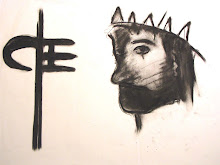unresponsive parents and afterwards the ontology 'I don't exist'
the inertia of the damaged object -- clinging to this ontology
episodic insight vs. real personal transformation
then: working through
the neutral citizen is in fact the bearer of a coded identity
an implicit ontology -- the inertia of existing power structures
token inclusion vs. real inclusion in power structures
then: societal change
oppression by virtue of membership in a social group
then: integration, inclusion
but: are we erasing what bothered other people?
and: where to be oneself and where to belong
thus: divisions in the ontology of the self
let us not look for people who are like us
let us look for people who share our values
identity politics vs. value coalitions
a demographics ontology; a voluntarist ontology
the self -- constructed by opposition to the other
the self -- reinforcing wounded attachments
the self -- constructed by dramatizing its pain
this is the ontology of the victim
humanism -- the universal human ontology
posthumanism -- deprioritizing shared characteristics
seeing who we are vs. choosing who we are
facticity vs. projected ontologies
Foucault: the aesthetics of the self
The self as a practice of austerity
Tuesday, August 23, 2016
Subscribe to:
Post Comments (Atom)


1 comment:
This is wonderful: succinct, honest, something seen from the boundaries between "the world as a given" and "the world as it was *not given to me* [a world withheld from me personally].
unresponsive parents and afterwards the ontology 'I don't exist'
the inertia of the damaged object -- clinging to this ontology
episodic insight vs. real personal transformation
then: working through
What I hear next is the old romance of the longing for total revolution. If the above was theorea, what follows is too close to a Hallmark card of romanticized lament. It is as if you can hardly bear the truth of tragedy and must rush quickly to formula of romance and apocalyptic justice. Tragedy is the real. The other stuff sounds likke Frankfurt School Barbie.
the neutral citizen is in fact the bearer of a coded identity
an implicit ontology -- the inertia of existing power structures
token inclusion vs. real inclusion in power structures
then: societal change
Post a Comment